5 WAYS TO OVERCOME EXCESSIVE ANXIETY
Symptoms of excessive anxiety are often ignored by many people. In fact, this excessive anxiety is a serious mental disorder and can cause various problems in a person’s daily life. Let’s find out these 5 ways to overcome excessive anxiety from the review below.
5 Ways to Overcome Excessive Anxiety
Have you ever felt anxiety? If so, what is the cause of your anxiety? One in four people feels anxiety at several phases in their lives.
Feeling depressed and anxious is a common response you give when you are under stress. Feelings of anxiety that are usually felt will generally pass after the stressful condition or the trigger for the depressed condition has passed.
Yes, anxiety is a normal reaction when you experience stress. However, if excessive anxiety occurs and can continuously have a negative impact on the body. This anxiety can be experienced from various things, such as fear of contracting the disease until when it will take or accept a tough decision.
Symptoms of excessive anxiety need to be recognized so that they can be treated immediately. This condition, also called anxiety disorder, can be controlled with proper treatments. Therefore, you need to be calm and control yourself.
Anxiety disorder or excessive anxiety itself consists of several types, namely panic attacks, generalized anxiety disorder (GAD), social anxiety disorder, and phobias or excessive fear of something, for example, fear of being at height.
Also read: Understanding the Difference between Stress and Anxiety
What causes anxiety?
Causes of excessive anxiety
Before recognizing the symptoms of excessive anxiety, you must know the cause first. Excessive anxiety or anxiety disorder is a serious mental disorder. This condition can be caused by problems with brain function that regulate fear and emotions.
Here are some factors that can affect a person affected by excessive anxiety:
- psychological trauma or negative experiences that cause stress,
- heredity,
- personality disorders,
- side effects of certain drugs or substances, including caffeine and drugs,
- certain diseases, such as heart disorders and thyroid disease.
The impact of excessive anxiety
The anxiety that is allowed to drag on or over can trigger anxiety disorders. In anxiety disorders, the anxiety that you feel does not go away even though the trigger has passed, even if in the beginning the anxiety that you feel arises for no particular reason.
Some symptoms that are common in someone with anxiety disorders, such as you will experience a panic attack, increased heart rate, rushed breathing, excessive fear that can eventually affect your social life, and health.
Excessive anxiety symptoms
Excessive anxiety is indeed composed of several types that have been mentioned previously. However, in general, all types of anxiety disorders have the same symptoms, namely:
- feeling uneasy, panicked, or afraid,
- cannot be calm or remain silent,
- heart palpitations,
- hands and feet feel cold, sweaty, numb, or tingling,
- hard to breathe,
- feel dizzy,
- dry mouth,
- nausea.
Meanwhile, if you experience a generalized anxiety disorder which is one type of excessive anxiety symptoms, you will experience the following signs:
- easily tired,
- always feeling restless,
- easy to get angry,
- difficulty concentrating or emptying the mind,
- muscle feels tense,
- sleep disturbance,
- difficulty controlling anxiety,
- feeling hurt
Also read: The Difference Between Anxiety Attack and Panic Attack
How to deal with anxiety
It is usually done with psychotherapy. Here are some types of psychotherapy to deal with excessive anxiety:
- Psychotherapy. The first way to deal with excessive anxiety is with psychotherapy. Psychotherapy helps you tell how you feel. Psychotherapy can also provide advice on how to understand and deal with your anxiety disorder.
- Cognitive-behavioral therapy. This is a type of psychotherapy where the therapist will teach you how to recognize and change your mindset, as well as behaviors that can trigger excessive anxiety.
- Therapies to manage stress. Therapy to manage stress with relaxation or meditation can help overcome excessive anxiety in a person.
In addition, the use of drugs can also be applied according to doctor’s instructions. Family support is also very important in one’s recovery from an excessive anxiety disorder.
Also read: The Pros and Cons of Taking Antidepressants
Ways to relieve excessive anxiety
Anxiety is triggered by a combination of factors. These factors such as individual characteristics, unpleasant life experiences to how their physical health. Unfortunately, the extent to which this anxiety has developed is rather difficult to detect, because its development occurs slowly and is generally different in each person.
When you feel anxious, you usually feel stuck and don’t know what you have to do to feel better. Without you even knowing, what you do might actually trigger your anxiety.
How to overcome anxiety and fear? Here are some things you might try to do to ease the anxiety and fear that you are feeling:
1. Take a deep breath
The first thing you should do when you feel anxiety is breathing. This suggestion is in accordance with a clinical psychologist, Marla W. Deibler, who said that deep diaphragmatic breathing has the ability to relieve anxiety because when you do, you help change the mode that the body is activating from a tense sympathetic nervous mode to a calm mode of parasympathetic nerves. You can do this step by breathing in, holding it, and exhaling slowly for the same count, which is four counts.
Also read: Deep Breathing Exercise
2. Believe that it is just a brain game
These tips are supported by the theory told by psychiatrist Kelli Hyland, who has witnessed firsthand how your brain can manipulate your mind so that it makes you think that you are critical because of a heart attack when you are actually experiencing a panic attack.
3. Future difficulties, let it be thought of in the future
In most cases, when you feel anxious, you will tend to focus on what will happen in the future rather than the present. In fact, even though something will happen to your future, focusing your mind on the things that are really in front of your eyes, will tend to enable you more to control the situation around you.
When you experience this condition, what you can do to ease your anxiety is to stop for a moment, breathe as comfortable as possible, then carefully examine what is happening around you.
4. Focus on what matters
When you are anxious, you tend to spend time focused on the anxiety you feel, so that you will feel even more anxious, without producing an effort to alleviate that anxiety. Until finally you will only end up wasting time uselessly. You can alleviate this phase of anxiety by keeping yourself busy doing something more useful for your present life.
5. Have a positive discussion with yourself (positive self-talk)
The anxiety that can arise from your own brain game makes only yourself the most capable of overcoming it. Discuss or say positive words to yourself, you can make it a good start. In alleviating anxiety in this phase, you can do by saying a few statements such as:
“What should I prepare in dealing with this situation?”
“I am better than my anxiety.”
“I can get through it.”
Also read: Anxiety attack help
Some other ways to overcome anxiety
To reduce or prevent anxiety, you can use the following methods:
- Get enough sleep or rest
- Limit consumption of caffeine and alcoholic drinks
- Reduce stress by trying relaxation techniques, such as meditation and yoga
- Do physical activity or exercise regularly
- Talk to family or friends, share your feelings
Also read: Most EFFECTIVE MEDITATION Techniques: Overcome Anxiety Disorders
If the above methods have been done and the triggering factors anxiety has also been resolved but the anxiety has not disappeared, you should consult a psychiatrist. To determine the cause and type of anxiety disorder that you experience, a psychiatrist will conduct a psychological examination.
If the results of the examination indicate that you have an anxiety disorder, the psychiatrist will overcome the anxiety that you feel with psychotherapy and counseling, as well as administering antidepressants if needed.
The anxiety that arises due to anxiety disorders over time has the potential to make sufferers feel depressed, want to commit suicide, abuse drugs, or alcoholic drinks. Therefore, if you experience it, consult a psychiatrist immediately.
***
Also read: CONTROLLING ANXIETY ATTACK
So, that was the review on 5 ways to overcome excessive anxiety. This excessive anxiety disease cannot just disappear without medical treatment. Moreover, the treatment of excessive anxiety and other mental disorders will be easier to do at the beginning when the symptoms have not worsened.
If you experience mental disorders, such as excessive anxiety, contact your doctor or psychiatrist immediately so that the symptoms you feel can be alleviated as soon as possible.
—————————————————————————————————————————————–
This post may contain affiliate links, which means I make a small commission off purchases, at no extra cost to you. Read my full disclosure here. Thank you for supporting the work I put on this site!
—————————————————————————————————————————————–
We Stress Free does not provide medical advice, diagnosis, or treatment. However, if you need someone to talk to and want to make friends, please feel free to reach me at ferra@westressfree.com. If you would like to REDUCE your STRESS and are interested to do an ONLINE THERAPY, you can do so here.
———————————————————————————————————————————
Disclaimer: The information contained in this website is for educational and informational purposes only and is not intended as health or medical advice. Always consult a physician or other qualified health provider regarding any questions you may have about a medical condition or health objectives.
Thank you for reading today’s topic: 5 WAYS TO OVERCOME EXCESSIVE ANXIETY


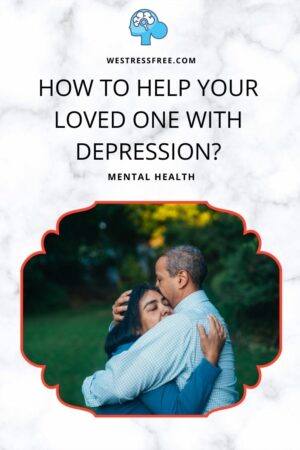
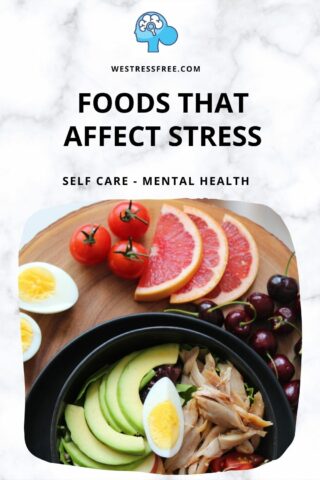
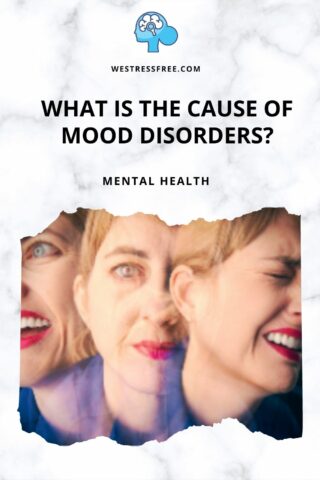
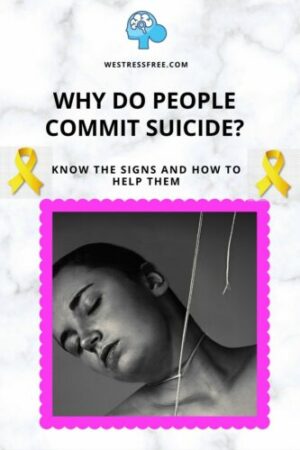

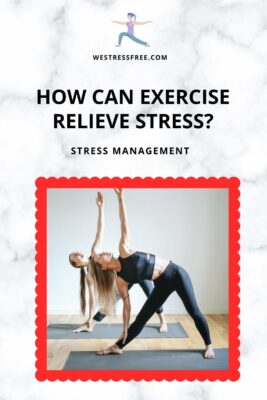
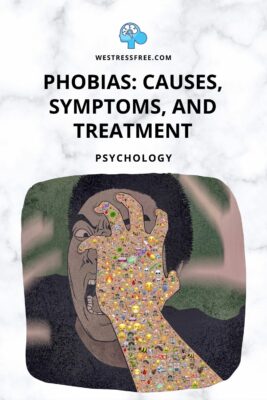

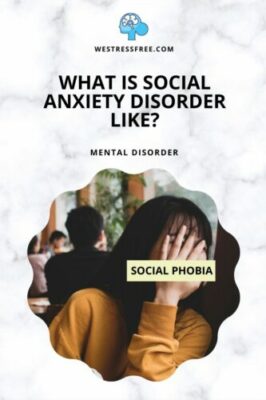
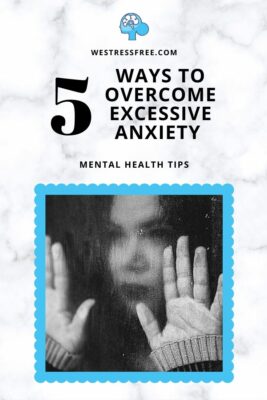










Hi Ferra,
Thanks for this informative article about how to overcome anxiety, I do find taking deep breaths & exercising regularly are the ways that suit me the best.
When anxiety attacks my mind, I would take as many deep breaths as possible. If things don’t get better, I would go to the gym working out & jogging until I feel better.
Anyway, thanks for sharing.
Matt
Hi Matt,
Thank you for sharing your experience with practicing deep breathing and exercise regularly. I am glad that you can find positive outlets to divert yourself from your anxiety. Great job! Keep up your great work! 🙂
I used to love jogging and cycling. Now, I am settle on meditation and zumba at home. 🙂
I appreciate your comment. Stay safe, happy and healhty!
Ferra
Ferra,
Thanks for the great information about managing stress and anxiety. It really is debilitating for people who suffer from chronic anxiety. I appreciate the tips and how to apply them.
Hi Robert,
You’re welcome. Glad you found this post useful and helpful.
Thank you for your kind comment. I really appreciate it!
Stay safe, happy and healthy!
Ferra
Hi Ferra,
As a mental health professional myself this is a subject which is close to my heart.
I think you’ve written a good article about different ways to deal with excessive anxiety! Nice website as well 😉
Thanks for sharing your easy accessible info,
Catherine.
Hi Catherine,
Thank you for your kind comment. Glad you found this article a good read.
Hope many people will find it helpful.
I really appreciate your the feedback. ?
Ferra
Due to the COVID19 pandemic, so many people are anxious today. We desperately need to ease up from the anxieties. I wish so many people could read this post.
Hi there,
Glad you found this post useful and helpful. Hope others will benefit from reading this post too.
Thank you for your kind comment. I really appreciate it!
Stay safe, happy and healthy!
Ferra